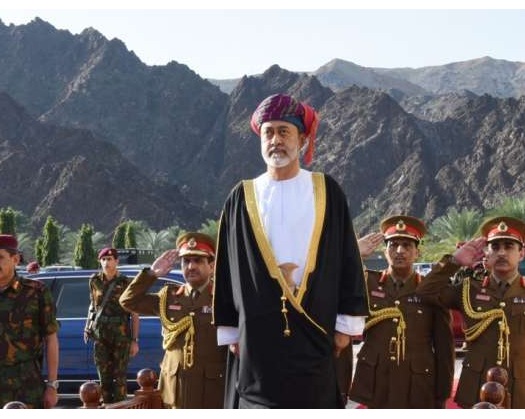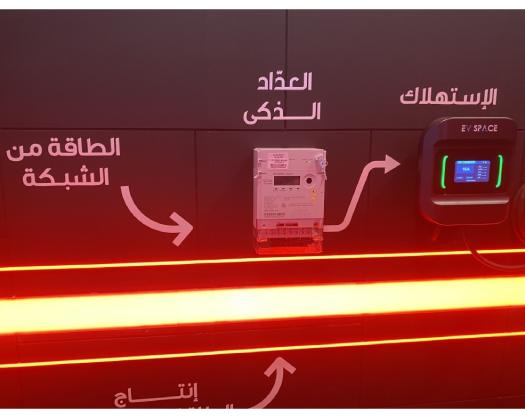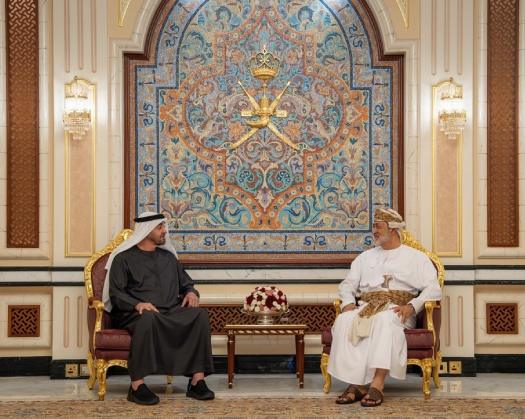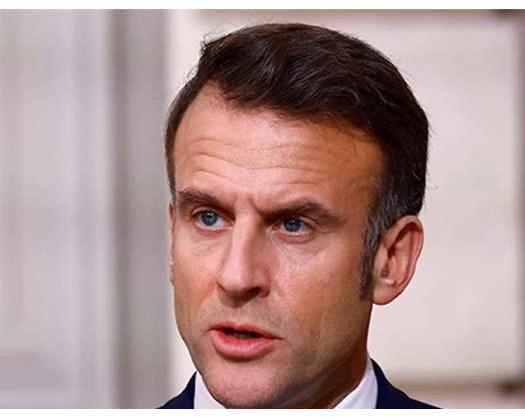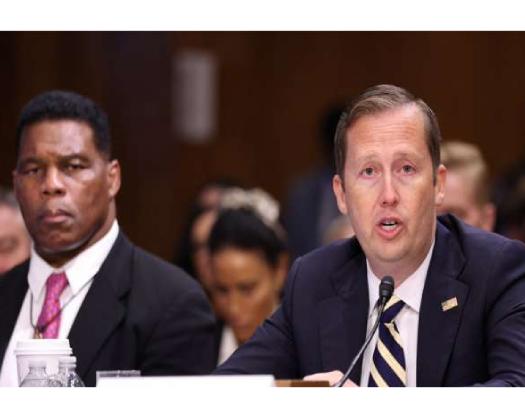Muscat: On Saturday, the Sultanate of Oman will commemorate His Majesty the Sultan's Accession Day, observed annually on January 11. Under the leadership of His Majesty Sultan Haitham bin Tarik, Oman’s Renewed Renaissance has achieved significant milestones.
These achievements align with the objectives of Oman Vision 2040 and have been realized through various administrative, financial, commercial, and investment initiatives, which also included the modernization of legislative systems, governance, integrity, accountability, and auditing processes.
Over the past five years, His Majesty the Sultan has reformed the State’s Administrative Apparatus and revamped the legislative framework. Consequently, the Sultanate of Oman has experienced notable advancements across multiple development sectors, with approximately 470 Royal decrees issued since His Majesty took office.
Legal experts have noted that His Majesty's approach is in line with Oman Vision 2040, aimed at adapting to ongoing global changes.
Jamal Salim Al Nabhani, Spokesman for the Ministry of Justice and Legal Affairs, stated that the introduction of modern laws and regulations since His Majesty’s Accession Day has led to progress in various political, social, and economic dimensions within the Sultanate. He further remarked to the Oman News Agency (ONA) that this legislation mirrors the evolving circumstances faced by nations. The restructuring of the State's Administrative Apparatus has been comprehensive, encompassing public legal entities, through Royal Decrees that delineate their jurisdictions and establish their organizational frameworks.
Al Nabhani noted that the initial Royal Decree issued during the Renewed Renaissance was No. 2/2020, which amended Annex No. 3 of the Law concerning the State's Flag, Emblem, and National Anthem. This decree was succeeded by numerous others that facilitated the enactment and revision of various laws and regulations in alignment with the Renewed Renaissance. A significant example is Royal Decree No. 6/2021, which established the Basic Law of the State, marking the beginning of a new era in the development of a legal and institutional framework in the Sultanate of Oman.
He emphasized that the issuance of these Royal Decrees and laws was complemented by a series of regulations and legislative decisions from the State’s Administrative Apparatus and other public legal entities. These regulations and decisions are essential for governing and implementing many provisions outlined in the Royal Decrees and laws. He further explained that the laws governing economic activities in Oman have been given considerable attention and have been updated to reflect the rapid changes occurring in the country. This includes the introduction of the Securities Law, the Labour Law, the Public Debt Law, the Bank Deposit Protection Law, and the Law on Expropriation for Public Benefit, as well as the restructuring of key regulatory bodies such as the Board of Governors of the Central Bank, the Ministry of Economy, the Ministry of Commerce, Industry and Investment Promotion, and the Financial Services Authority.
The legislation regulating social activities in the country has undergone a significant modernization process, as highlighted by the issuance of Royal Decree No. 50/2023, which establishes the Bylaw of the Social Protection Fund, and Royal Decree No. 52/2023, which enacts the Social Protection Law. These decrees serve as the foundational legal framework for the services and support provided by the state to individuals in the Sultanate of Oman. In accordance with Royal Decree No. 50/2023, all entities within the State’s Administrative Apparatus that deal with retirement and social protection have been consolidated into a single body known as the Social Protection Authority. Additionally, the Social Protection Law has unified the various pieces of legislation related to social protection, including the Social Security Law.
Sariya Khalfan Al Hadi, a Member of the State Council and part of the Council's Legal Committee, remarked that since the day His Majesty the Sultan ascended to the throne, the Sultanate of Oman has experienced updates to existing laws and the introduction of new legislation designed to promote comprehensive and sustainable development. These efforts aim to establish the necessary legal frameworks to fulfill the objectives outlined in Oman Vision 2040.
She informed the Oman News Agency (ONA) that the newly enacted laws and revisions to existing legislation have significantly contributed to the advancement of various sectors, aligning with the goals of the vision and the broader Renaissance of Oman, which embodies the insightful vision of His Majesty the Sultan for the nation's future.
She mentioned that a series of laws have been enacted that align with the vision for Oman’s Renewed Renaissance, aimed at fostering sustainable development, ensuring local and international security and peace, and achieving prosperity and social well-being for both Omani citizens and residents of the nation.
She highlighted that these laws encompass the Foreign Capital Investment Law, designed to attract foreign investments, improve the business climate in the Sultanate of Oman, and simplify investment processes in accordance with economic development strategies. She emphasized that these regulations are intended to draw in additional investments, aid in diversifying the Omani economy, reduce reliance on oil as a primary revenue source, and position the Sultanate of Oman as an appealing destination for foreign investment.
Furthermore, she confirmed that the introduction of the new Media Law is intended to regulate media operations within the country, foster transparency and democratic principles, and cultivate a ‘responsible media community.’
She noted that the implementation of the Media Law is in accordance with the provisions of the Basic Law of the State. She indicated that this new legislation demonstrates a commitment to enhancing media freedom. The new Media Law clearly states that media freedom is protected under the Basic Law of the State, which includes the freedom of expression, the right of individuals to engage in media activities and access information, as well as the right of media professionals to protect their sources, she elaborated.
She wrapped up her address by emphasizing that the laws enacted and revised during the reign of His Majesty Sultan Haitham bin Tarik have significantly advanced development in the Sultanate of Oman. These laws bolster collaboration among the government, private sector, and civil society to meet development objectives. They serve as vital instruments for fostering sustainable development and advancing social justice. Omani citizens actively engage in this development journey across various sectors.
In response, Dr. Ahmed Ali Al Sa’adi, a member of the Shura Council and Head of the Legislative and Legal Committee, remarked that the recent economic legislation has been instrumental in enhancing the business climate in the Sultanate of Oman by offering incentives for both foreign and domestic investments. Al Sa’adi noted that this has led to increased economic growth opportunities and a diversification of income sources.
He informed the Oman News Agency (ONA) that this legislation has been crucial in achieving economic sustainability goals by promoting innovation, improving education, and strengthening oversight to ensure the effective utilization of national wealth and resources.
He also highlighted that the social legislation reflects the Sultanate of Oman’s dedication to upholding citizens’ rights, fostering social equity, and empowering eligible groups through social security initiatives. Furthermore, these laws establish a legal framework that promotes transparency and equality, thereby preserving national unity and fostering social solidarity.
Al Sa’adi emphasized that the newly enacted laws align with the principles of Oman Vision 2040, which prioritize sustainable development, education, and effective governance.
He further highlighted that these laws and regulations have reinforced the Sultanate of Oman’s status as a stable and appealing destination on both regional and international fronts. Al Sa’adi elaborated that these legislative initiatives embody a prudent and ambitious vision aimed at fostering a prosperous and sustainable future for Oman amid its ongoing renaissance.
In a related statement, Khalifa Marhoun Al Rahbi, Deputy Chairman of the Omani Lawyers Association, informed the Oman News Agency (ONA) that since the accession of His Majesty, a comprehensive modernization initiative has been implemented across various legislative domains, encompassing economic, social, and legal aspects, to support the renewed renaissance in Oman.
Al Rahbi noted that these laws were designed to align with the aspirations of the forthcoming phase and to strengthen the foundations of sustainable development within the nation. They have played a crucial role in establishing a contemporary legal framework that underpins the Oman 2040 vision and facilitates the realization of its strategic objectives.
On the economic front, he explained that the new laws are instrumental in enhancing the investment climate, making it more appealing to both local and international investors. These laws encompass the Foreign Investment Law, the Public-Private Partnership Law, the Value Added Tax Law, the New Labor Law, the Government Performance Governance Law, and the Natural Resources Management and Environmental Sustainability Law, among others, which have contributed to diversifying income sources and bolstering non-oil sectors such as logistics, industry, and tourism.
Al Rahbi emphasized that the legislation aims to improve the quality of life for both citizens and residents at the social level. This is achieved through social security laws that bolster the social safety net, as well as a new labor law designed to enhance the work environment and safeguard workers' rights. He also highlighted that these new laws promote women's empowerment and protect children's rights.
Concluding his remarks, Al Rahbi stated that the legislative reforms taking place in the Sultanate of Oman during its revitalized renaissance demonstrate the wise leadership's dedication to establishing a promising future grounded in robust legal principles.

